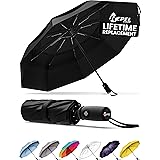Delay in moose, elk draws leads to licensing uncertainty for some Manitoba hunters
Some Manitoba hunters are feeling targeted after the province unexpectedly delayed the issuing of hunting licences and didn’t explain why.
The province announced last Thursday the results for moose and elk draws, in which non-Indigenous hunters are granted permission to hunt, would be delayed by a few weeks. It says the results of the draws will be revealed by July 12.
The brief email concludes by apologizing for the delay and thanking hunters for their understanding. No rationale was provided.
The notice came two days after Manitoba Keewatinowi Okimakanak, which advocates for First Nations in northern Manitoba, said it told government ministers in a meeting to stop issuing licences to non-Indigenous hunters without first ensuring First Nations people have harvested enough for food and ceremonial purposes.
While the province wouldn’t attribute the delay to MKO’s urging, one First Nations chief said the holdup appears to show the government is listening.
“I’m happy about it. I mean, we’re finally making progress in our discussions,” said Chief David Monias of Pimicikamak Cree Nation.
“All we’ve been asking for is communication to try and resolve this issue.”
Class-action lawsuit threatened
In a Facebook post last week, MKO accused Manitoba of dismissing its constitutional obligation that First Nations people have the right of top priority to hunt, fish, trap and gather for food.
MKO demanded the province “immediately terminate the draw for Manitoba resident hunter licences in the specific game hunting areas where First Nations traditionally hunt, and to cease enforcement of Manitoba regulations against First Nation hunters,” the post continued.
Monias said MKO warned the province in the meeting it may file a class-action lawsuit if the government didn’t act.
After the draws were delayed, the Manitoba Wildlife Federation told its members it would “take any steps necessary to defend our outdoor heritage and legally enshrined right to hunt,” while the Manitoba Lodges and Outfitters Association cautioned the government against “valuing one group more than another,” which it told members was “counterproductive to the reconciliation process but will cause further division amongst Manitoba residents.”
Monias said he believes non-Indigenous people would still have areas to hunt freely.
“I really wanted to be able to get a win-win situation, and I’m sure that they understand how we feel, or I hope that they do,” Monias said.
“There’s been a lot of hunting happening in our territory without our involvement, without our discussion, without asking us if they can hunt in our territory,” he added. “They do have a right to hunt, but only if they are given a permit or licence to do so.”
Jamie Moses, Manitoba’s minister of natural resources, didn’t say if the government is responding to a specific complaint about the issuing of hunting licences, but said the province is taking seriously all the voices it is hearing from.
“We know that there are so many Manitobans who value the ability to go hunt right across Manitoba,” he said.
“In select areas of the province, we are reassessing to make sure that there’s going to be a proper amount of [moose and elk] populations to allow that those draws to go ahead. And at the same time, we’re having very productive conversations with Indigenous and First Nations communities to ensure their rights are being upheld as well.”
He wouldn’t answer when CBC asked if the delay will result in Manitoba issuing fewer hunting licences.

The Manitoba Lodges and Outfitters Association represents outdoor hunting operators. President Melanie MacCarthy said the province hasn’t answered their association’s questions since licensing draws were unexpectedly delayed.
“I think it’s a bold move primarily because there’s been no conversation with stakeholders,” MacCarthy said.
Though she said she cannot speak to the government’s intentions, she worries the province may give into MKO’s demands. She referred to wildlife as a shared resource that all invested stakeholders should have a say in.
“A lot of our operators are operating in these regions,” MacCarthy said.
“If they are eliminated from hunting or clawed back from hunting or whatever that is potentially going to look like, we have livelihoods at stake — in some cases, these are generational businesses that people have put millions of dollars of assets into.”
Rick Wowchuk, the Tories’ critic for natural resources, called on the government to reveal where it stands.
Premier Wab “Kinew and his government should do the right thing and immediately explain this decision,” Wowchuk said in a statement.




